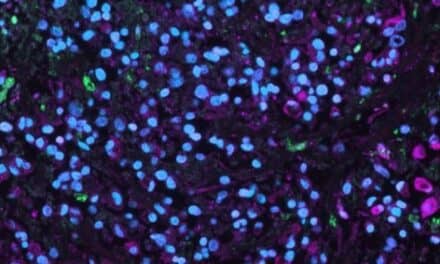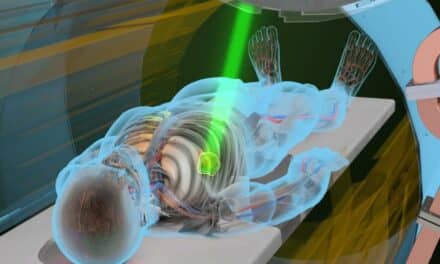In honor of National Lung Cancer Month this November, Hackensack University Medical Center in New Jersey is reminding the public of the importance of lung cancer screenings.
New studies show an increase in lung cancer mortality and a decrease in diagnosis during the COVID-19 pandemic, according to the hospital. To meet the needs of those who are still uneasy about venturing out, the Hackensack University Medical Center now offers an option for patients to participate virtually in a telehealth shared decision-making visit with a nurse practitioner.
The telehealth visit is part of Hackensack University Medical Center’s comprehensive lung cancer screening program that connects eligible patients with the preventive lung care they need. According to the hospital, a recent study found that virtual single-visit screenings are just as effective as single-visit screenings done in person at the hospital.
“We want to make it as easy as possible for patients to get preventive lung cancer screenings,” says Emilija Bitinaityte, RN, BSN, coordinator of the lung cancer screening program. “Our team handles all aspects of lung cancer screening for our patients, including scheduling, shared decision-making telehealth visits, preauthorization, billing, communicating results to the referring physician, and reminders for follow-up care.”
Lung cancer is the most common cause of cancer death in the United States. For current or former smokers, lung cancer screening increases the chance of finding lung cancer early, when it is most treatable. Although lung cancer screening may lead to early detection of cancerous tumors, only 3% of eligible Bergen County, N.J., residents access this potentially lifesaving service, according to the hospital.
“Postponing preventive screenings could allow a health condition to go undetected, resulting in a later-stage diagnosis,” says Nabil Pierre Rizk, MD, MPH, MS, chief of thoracic surgery for Hackensack Meridian Hackensack University Medical Center and codirector of thoracic oncology for John Theurer Cancer Center. “When it comes to lung cancer, later-stage disease may require more invasive treatment and has a lower chance of survival.”
The Screening Process
To start the screening process, eligible patients can complete a shared decision-making telehealth visit with a Hackensack University Medical Center nurse practitioner, or they can schedule a shared decision-making visit with their referring provider.
“We understand that patients are busy, so we wanted to offer a flexible telehealth option that allows them to do their shared decision-making visit from home, work, or on the go,” Bitinaityte says. “Although we will still provide the patient’s screening results to their primary care provider, patients who choose the telehealth option no longer have to schedule an in-person primary care visit before their lung cancer screening.”
After the shared decision-making visit is complete, the next step is to schedule the lung cancer screening. “Lung cancer screening is performed using a safe, low-dose CT scan that takes approximately one minute,” Rizk says. “Low-dose CT uses only a fraction of the radiation of a standard CT scan.”
Bitinaityte emphasizes that the lung cancer screening CT scan is a painless imaging procedure that does not require fasting. “It’s not necessary to avoid eating or drinking before the test, and you will not receive any medications or injections,” Bitinaityte says. “It’s painless, simple, takes only a few minutes, and you can resume your normal activities immediately afterward.”
After the CT scan, the Hackensack University Medical Center team will provide the patient’s lung cancer screening results to their referring physician, who will contact the patient with the results and provide recommendations for follow-up care. The lung cancer screening team will also provide scheduling reminders for future scans if patients require long-term follow-up.
Hackensack University Medical Center also offers a smoking cessation program that provides free smoking cessation counseling and free nicotine replacement. All participants in the lung cancer screening program receive access to a telephone quitline, as well as web-, print-, and text-based educational materials. Patients may also choose to participate in up to six brief telephone counseling sessions to help them quit.
During the pandemic, some patients have been postponing preventive care, which can lead to devastating consequences. “Lung cancer screening is such an important tool to help current and former smokers take the best care of their health,” Bitinaityte says. “It’s an underutilized resource that can provide lifesaving benefits.”
Featured Image: Hackensack University Medical Center offers lung cancer telehealth screenings to eligible patients in an effort to increase access to potentially life-saving early detection.






